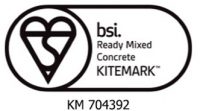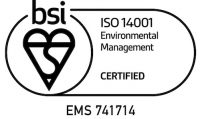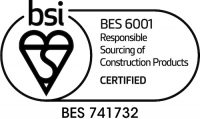If you’re starting a new DIY project, whether it’s laying a concrete base for a new shed or laying a concrete floor in your new home extension, finding the best type of concrete for the task at hand can be difficult task.
There are lots of options available to you, so we’re going to run through a few of the more common questions to make sure you get the best product for your project.
Do you want screed or concrete?
One of the most common mistakes DIYers make is to order concrete when they actually need screed.
Concrete is a building material that is used for structural purposes, such as foundations and footings.
Screed is a less coarse mixture, made with finer aggregates to give a smoother finish. It is applied a few centimeters thick as a final floor covering, usually over a concrete sub base. It provides a hard wearing, even and level finish that is ideal for tiles, carpet, laminate flooring, etc, or it can be left exposed (this is usually the case in industrial environments as a screed floor is low-cost and functional.
So if you need to smooth and even an exposed concrete floor ready for a new carpet, you need to order screed. But if you’re laying a patio or garage base, building a wall or securing fence posts, you need to order concrete. Still not sure? Give our friendly team a call to discuss your project or have a look at our screed FAQs!
What type of concrete is best for your project?
There are lots of different types of concrete to choose from, and unfortunately their names aren’t particularly helpful for working out which is best for your project.
C15 and C20 are most often used for lightweight domestic applications such as home extensions and garden paths, but depending on your project, you may require something most robust, such as C35 for a heavy traffic workshop floor.
Below is a list of the common uses for a range of concrete products, – but if you can’t find what you need, just give us a call and a member of our team will help you make the right choice!
- C7/8: Cavity filling, kerbing, domestic foundations & haunching.
- C10: Foundations for steps, trench fill, floor blinding & drainage works.
- C15: Foundations for small walls, sheds & conservatories. Paving for steps and paths.
- C20: Foundations for large walls, garages, houses & extensions. Paving for patios. Reinforced bases & oversites for conservatories, garages, sheds, greenhouses.
- C25: Foundations and reinforced bases for houses & extensions. Trench fill, kerbing & patios.
- C30: Paving external kennels and reinforced hard standings. Reinforced bases for workshops and unreinforced bases for houses & extensions.
- C35: Reinforced bases for commercial buildings and agricultural light storage areas.
- C40: Foundations for septic tanks, paving HGV parks and agricultural yards.
Do you want volumetric or ready-mixed concrete?
The next option you will need to consider is whether you choose volumetric or ready-mixed concrete. Ready-Mixed concrete is usually made in large batches at a concrete plant, dispensed into a delivery truck and sent to site for pouring. This is ideal for large concrete deliveries, and ensures a consistent grade and mixture. However it can be inflexible, as customers have to pay for any leftover concrete to be disposed of, and if you only want a small amount, paying for a part-load can be excessive.
Volumetric concrete on the other hand is mixed up on site, to suit your specific requirements. This is ideal if you only need a small amount, or you’re not sure exactly how much you need as the mixer truck operatives can help you work out the right quantity – so no waste or part-load fees. Because it’s made on site, it’s also fresher so you get longer to work with it, and the batch type can be altered if you’ve ordered C15 but actually need C20.
Here at EasyMix, we think the benefits of volumetric concrete definitely outweigh the benefits of ready-mixed concrete – but if you want to find out more, simply give us a call or read our guide to buying volumetric concrete.
Do you want admixtures?
No matter what type of concrete you need for your project, you can tailor the mixture to suit certain requirements. For example, if you need the concrete to flow more freely into an awkward shape, you can add a plasticiser, or if you’re in a rush to get your project finished you can add an accelerator to speed up the curing process.
The team at EasyMix will be happy to advise if you think you’ll need any extras in the mix, for example:
- Plasticisers for better workability
- Accelerating chemicals to increase the rate of curing
- Retarding agents to reduce the rate of curing
- Corrosion inhibitors to reduce the corrosion of reinforced steel rebars
- Fibres for enhanced strength



